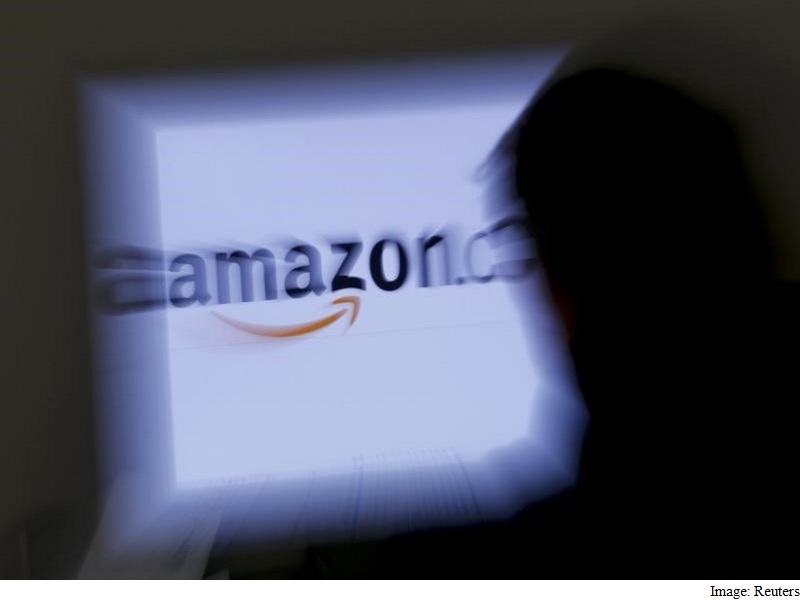Amazon Unfairly Billed Parents for Their Kids' In-App Purchases, a Judge Rules

The key question in the legal battle was whether Amazon's app store made it too easy for children to buy virtual goods with real money inside games labeled as "free" without parental permission.
Following the launch of the Amazon app store in 2011, the company fielded thousands of complaints about unauthorized charges made by children in apps where they could purchase virtual items, the FTC alleged in a suit seeking refunds for consumers.
The practice was unfair because the e-commerce giant's disclosures about in-app purchases didn't do enough to explain to consumers what they were authorizing, the agency argued.
Amazon, whose founder Jeff Bezos also owns The Washington Post, has changed the in-app purchase interface over the years and added more parental controls, according to court filings. It also said it refunded consumers who complained.
In a ruling Tuesday, a federal judge granted the FTC a summary judgment that found the tech giant responsible for the charges.
"[W]hile entering a password linking her Amazon account to a new device, a reasonable consumer unaware of the possibility of in-app purchases would not assume she was authorizing unforeseen charges," US District Judge John Coughenour wrote in his order.
FTC Chairwoman Edith Ramirez praised the decision. "We are pleased the federal judge found Amazon liable for unfairly billing consumers for unauthorized in-app purchases by children," she said in a press statement.
The court has yet to weigh in on just how much Amazon will have to pay back to consumers to settle the liability.
But Coughenour also granted a partial summary judgment for Amazon. Citing the steps the company had already taken to rectify the situation, the judge denied an FTC request for injunctive relief that would have required Amazon to obtain more thorough consent for in-app purchases.
Amazon did not immediately respond to a request for comment on the judge's decision.
Amazon's competitors in the app market space also faced similar inquiries from the FTC but decided not to head to court. In 2014, Apple agreed to settle charges related to unauthorized in-app purchases made by children to the tune of full consumer refunds of at least $32.5 million, while Google also settled for consumer refunds of $19 million.
© 2016 The Washington Post
For the latest tech news and reviews, follow Gadgets 360 on X, Facebook, WhatsApp, Threads and Google News. For the latest videos on gadgets and tech, subscribe to our YouTube channel. If you want to know everything about top influencers, follow our in-house Who'sThat360 on Instagram and YouTube.
Related Stories
- Samsung Galaxy Unpacked 2025
- ChatGPT
- Redmi Note 14 Pro+
- iPhone 16
- Apple Vision Pro
- Oneplus 12
- OnePlus Nord CE 3 Lite 5G
- iPhone 13
- Xiaomi 14 Pro
- Oppo Find N3
- Tecno Spark Go (2023)
- Realme V30
- Best Phones Under 25000
- Samsung Galaxy S24 Series
- Cryptocurrency
- iQoo 12
- Samsung Galaxy S24 Ultra
- Giottus
- Samsung Galaxy Z Flip 5
- Apple 'Scary Fast'
- Housefull 5
- GoPro Hero 12 Black Review
- Invincible Season 2
- JioGlass
- HD Ready TV
- Laptop Under 50000
- Smartwatch Under 10000
- Latest Mobile Phones
- Compare Phones
- Moto G15 Power
- Moto G15
- Realme 14x 5G
- Poco M7 Pro 5G
- Poco C75 5G
- Vivo Y300 (China)
- HMD Arc
- Lava Blaze Duo 5G
- Asus Zenbook S 14
- MacBook Pro 16-inch (M4 Max, 2024)
- Honor Pad V9
- Tecno Megapad 11
- Redmi Watch 5
- Huawei Watch Ultimate Design
- Sony 65 Inches Ultra HD (4K) LED Smart TV (KD-65X74L)
- TCL 55 Inches Ultra HD (4K) LED Smart TV (55C61B)
- Sony PlayStation 5 Pro
- Sony PlayStation 5 Slim Digital Edition
- Blue Star 1.5 Ton 3 Star Inverter Split AC (IC318DNUHC)
- Blue Star 1.5 Ton 3 Star Inverter Split AC (IA318VKU)

















